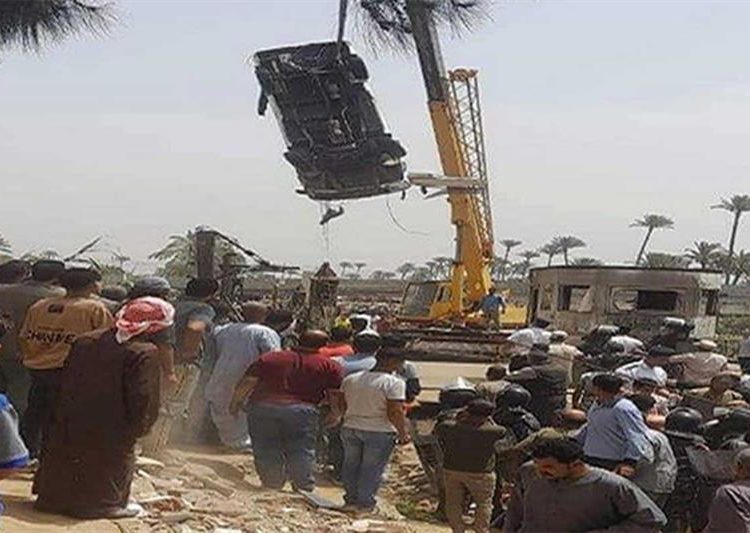Last Tuesday, Egyptians woke up to a tragedy with a minibus plunging off an unlicensed river ferry, carrying a group of young female workers, aged 15 to 40, in Abu Ghaleb village, Giza. Claiming the lives of 17, the accident sparked a controversy over the dangers of river ferries.
In a similar accident last February, a ferry carrying day labourers sank outside Cairo, resulting in the death of 10 people.
These latest two incidents add to woes caused by ferry disasters that shocked Egypt over recent years.
The recurrence of such tragedies has prompted parliamentarians, who demanded solutions to avoid such crises in the future.
MP Ihab Mansour asked for enforcing inspection on Nile ferries to ensure that they are licensed, and provided with the necessary safety tools, as well as subjecting them to regular maintenance.
Most ferries in villages lack the required standards and technical specifications, such as providing life jackets matching the number of passengers, fire extinguishers, and other tools that ensure safe navigation, Mansour added. Additionally, boatmen often lack the necessary training to avoid accidents.
“Operation of all unlicensed ferries must stop immediately,” he stressed.
For her part, MP Hend Rashad called for dispensing with such ferries, most of them makeshift, and constructing bridges instead, to preserve people’s lives.
“The village of Abu Ghaleb in Giza has suffered serious ferry accidents over the years. ‘Al-Riyah Al-Buhairi’ Canal goes through the village, dividing it into two art, and ferryboats are the only means for people to cross from one side to another. Incidents of falling off a ferryboat are recurrent. Sometimes a ferry boat breaks down in the middle of the water,” Rashad said.
“Ferries are considered a dangerous means of transport. Going from one side to the other just takes a couple of minutes, though people could wait for their turn for as long as an hour. Most students and workers never arrive to their destination on time,” she added.
Ferries are, in fact, the only means of transport in most of the islands extending along the river. According to the official website of the State Information Service, there are 144 islands declared as natural reserves in the Nile, inhabited by 3 million people.
Islanders find no other solutions, but to go through a daily risk on rusty, dilapidated ferries, or small fishing boats, with no safe alternatives to them.
According to an official report, around 15 ferry accident occurred over the period 2007- 2020, almost one annually, claiming the lives of at least 180 people.
Meanwhile, “Daftar Ahwal” Centre for Research, Archiving and Documentation estimated the number of ferry boats in Egypt at approximately 9,500 , more than 45 per cent of which are unlicensed and 70 per cent of operators work with no personal permits or licences.
The Ministry of Transport is seeking to replace Nile ferries with concrete bridges to spare the lives who have no other choice but these ferries to cross from one side of a canal to the other, or across the Nile in some areas, in Upper Egypt for instance.
In 2020, President Abdel Fattah El Sisi gave commands for establishing overhead bridges to as an alternative to Nile ferries in villages with populations exceeding 10,000 residents.
“Constructing such bridges would be a very good solution, allowing citizens and cars to cross in safety back and forth,” MP Mohamed Zein Eddin said.
“The existing ferries have been in use for more than 50 years without development or regular follow-up, which has caused many accidents that threaten the lives of citizens,” Zein Eddin added. He noted that a feasibility study should be conducted on any project to replace ferries to determine what is suitable for each village.






Discussion about this post